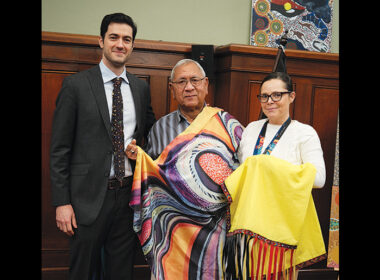Thirty years ago, on April 7 1994, the Military Compensation Act (MCA) commenced. It was essentially an amendment Act to address shortfalls in the Safety Rehabilitation and Compensation Act 1988 (SRC) and the Veterans' Entitlements Act 1986 (VEA). A decade later, the Military Rehabilitation and Compensation Act 2004 (MRCA) was introduced in 2004 to provide compensation and rehabilitation to Australian Defence Force (ADF) members who served on or after July 1 2004.
This year, the Australian government announced the three Acts determining veterans’ compensation would be simplified with a focus on the MRCA as the principal piece of legislation.
Under the MRCA, eligible applicants can receive permanent impairment compensation according to the degree of impairment and lifelong effects resulting from injury (including mental and emotional injury) or disease relating to their service. The compensation is calculated according to the Guide to Determining Impairment and Compensation. Also included in the MRCA are incapacity payments, which are taxable, the Special Rate Disability Pension (SRDP), compensation for the death of a member for “wholly dependent partner.”
The MRCA, and the interaction between three Acts available to veterans depending on the time of their service, is likely to be significantly simplified and streamlined as a result of the Royal Commission into Defence and Veteran Suicide.
A final report is expected from the Royal Commission in September this year. Royal Commissioners Nick Kaldas APM, the Hon James Douglas KC, and Dr Peggy Brown AO delivered an interim report on in August 2022.
MRCA: comprehensive but complex
Peter Sutherland and Robin Creyke AO are the co-authors of Veterans’ Entitlements and Military Compensation Law, the fourth edition of which was published on April 12.
Peter Sutherland is a Visiting Fellow at the ANU College of Law, Director of SoftLaw Community Projects in Canberra and is admitted as a legal practitioner in the ACT, NT and Queensland. Robin Creyke AO is an Emeritus Professor at The Australian National University, and has been a member of four Commonwealth, one ACT, and a private sector tribunal.
“Obviously the book has changed because in 2000 we didn’t even have the Military Rehabilitation and Compensation Act, so the original book was on the Veterans’ Entitlement Act alone,” Sutherland tells LSJ.
“Robin is an academic administrative lawyer. Nobody else in Australia has been writing in an academic context in military compensation law. What we’ve done is identified and explained the jurisprudence in this field. We read the cases, we read the law, we wrote the material and then people read and use it. Tribunal members, veterans, ex-service advocates and Department [of Veterans’ Affairs] people use it.”
Sutherland says the MRCA has offered comprehensive coverage since 2004, but matters are not so clear-cut for veterans injured prior.
“If you were injured after 2004 it’s comprehensive, but there’s many who were injured before 2004 and it’s very complex in terms of which Act you are covered by and what’s you’re entitled to,” he explains.
Sutherland explains the Black Hawk accident 25 years ago was a catalyst for examining and replacing the Veterans’ Entitlements Act. In June 1996, during training for counter-terrorism operations, two Australian Army Black Hawk helicopters collided in the Townsville Field Training Area resulting in 18 deaths, 15 from the Special Air Service Regiment and three from the 5th Aviation Regiment.
“In the 1990s, people were concerned that the Veteran Entitlements Act was out of date. In the Black Hawk accident, their compensation entitlements were wildly different depending on when they served, and which Act they were covered by. The anomalies of that incident, which came very shortly after 1994, led to a strong demand for rationalising the whole scheme, and that led to the new [MRCA] Act,” he says.
“If you were injured before 2004, you never knew which Act you were covered by and what you were entitled to, so you could pick and choose. It’s very complicated.”
Creyke says, “It’s extremely complicated, and that’s why further legislative amendments are going to take place in the next couple of years, because even the efforts they went to in 2004 have not avoided that complexity and as a consequence, quite drastic changes will have to be implemented to simplify the system.”
The ‘long tail’ of schemes
“There’s a very long tail that exists in relation to these schemes,” says Creyke. “Because they affect not only the veterans, but also their widows and children, so the tail of these schemes requires a lot of grandfathering which inevitably adds to that complexity.”
Sutherland says, “We still have one or two widows of First World War [1914 –1918] veterans, so it takes a long time for the schemes to finish, even if there are no more WWI veterans alive who were at the at the war.”
“About a year and a half ago, the Royal Commission recommended cutting delays and it has really cut waiting times since putting on over 500 staff. The final report from the Royal Commission will come out towards the end of the year, but we must make the legislation less complicated.
“The Department became swamped with claims, and delays with those claims led to very bad outcomes. There’s been a lack of awareness around how persistent and serious some injury types are. The extent has only recently been realised of the relevance and importance of suicide and mental health problems post-service, including PTSD which wasn’t fully recognised at the time we wrote the first book; in WWI it was called ‘shell shock’. The understanding of injury from war evolves over time.”
He points out Australia has been at war for much of the past 20 years.
“We didn’t have a person killed in the armed forces overseas since Vietnam [1962 – 1973] and Timor [the International Force East Timor (INTERFET) was deployed from 1999 to 2000], which is 25 years. Since Timor, we’ve lost people constantly in Afghanistan, so we’re in a different environment.”
Creyke points out some of the reasons for the Department of Veterans’ Affairs experiencing delays in addressing claims were “due entirely to the complexity of the legislation, which must be taken into account. When you have complex laws, those who administer them have to take time to ensure they interpret and apply them correctly, which may be more than one Act, so in light of that, there have been terrible problems.”
In April this year, new research conducted for the Royal Commission into Defence and Veteran Suicide estimates that one serving or ex-serving Australian Defence Force member has suicide-related contact with emergency services every four hours across Australia.
Diagnoses of mental illness and diseases assisted by Statements of Principles
Statements of Principles (SoPs) exclusively state what factors must exist to establish a causal connection between particular diseases, injuries or death and service. Claims made under both the Veterans’ Entitlements Act 1986 (VEA) and the Military Rehabilitation and Compensation Act 2004 (MRCA) are determined through application of SoPs.
Creyke says, “The Department has, over the last little while, spent time identifying the most commonly-claimed illnesses and diseases and they are increasingly deeming those to be war-caused which simplifies the process. Complex medical cases are undoubtedly less easy to solve and won’t be included in the deeming. Medical diagnoses are benefitted by the standard of proof, which is a unique standard of the criminal law standard, to the negative and that certainly benefits veterans and their widows and/or dependents.”
She adds, “The two bodies set up to develop Statements of Principles have actually made more concrete the type of circumstances which will lead to, or are likely to lead to, particular illnesses or diseases. That Statements of Principles scheme is one which I think has gone a long way to assist veterans in proving their case.”
Sutherland says that at present, the time between an application under the MRCA can be very quick, and within weeks for straight-forward claims.
“You can have injuries where acceptance is within days where it is simple cases. If you don’t consider delays, some can take months because veterans have to go back to their doctors and research has to be done. A good outcome can be two to four weeks, but the average can be longer.”
Lawyers play a role in complicated matters
Sutherland says, “In the usual case, you don’t need a lawyer. You would only engage a lawyer when it gets complicated and perhaps when it goes to review or appeal.”
Creyke says that the process of applying for support payments and pensions has been simplified through an online portal called My Service, which is connected to MyGov.
She says, “Lawyers are not entitled to appear at the Veterans’ Review Board, which is the first external review body if a veteran is not satisfied with a decision of the Department. That body mediates many of the outcomes very successfully, but lawyers certainly come into their own before the [Administrative Appeals] Tribunal and the court system.”
Sutherland says, “Many lawyers get approached by veterans because they have an existing relationship. The lawyer may have handled their will or their property, so lawyers will come across vet matters because they have existing clients but in the earliest instance, lawyers are best off just making sure that the claims process is followed intelligently. Where the lawyer has a job to do, and starts charging fees, is when there’s a complex issue which needs to be litigated.”
“There are things that need to go to an adjudication and litigation process, so you need the Administrative Appeals Tribunal and the federal court to have a look at the proportion of cases and keep everybody on track, including the Department.”
It is a complicated system and one that can be tricky to navigate for lawyers unfamiliar with legislation relating to veterans’ affairs.
Sutherland says, “It’s not an area which has had a lot of lawyers involved and since becoming involved as academics, for the last 24 years we’ve given tools and materials to enable people to understand the legislation and the Department use our book as well, to work out what’s lawful. There’s a long history of administrative law relying on external academic resources, and there’s a few of us who are trying to create understanding for veterans and their advocates in the field.”
Sutherland says that ultimately, “the critical thing that has to improve is the transition from leaving the ADF back to civilian society. They need support from the early days to prevent things getting worse. Transition is critical and it has been appallingly bad in the 24 years I’ve been involved, though it is much more of a focus now.”
Creyke adds, “It will be an emphasis in the Royal Commission report. Big organisations like the defence force take time to turn around, but that’s happening.”




